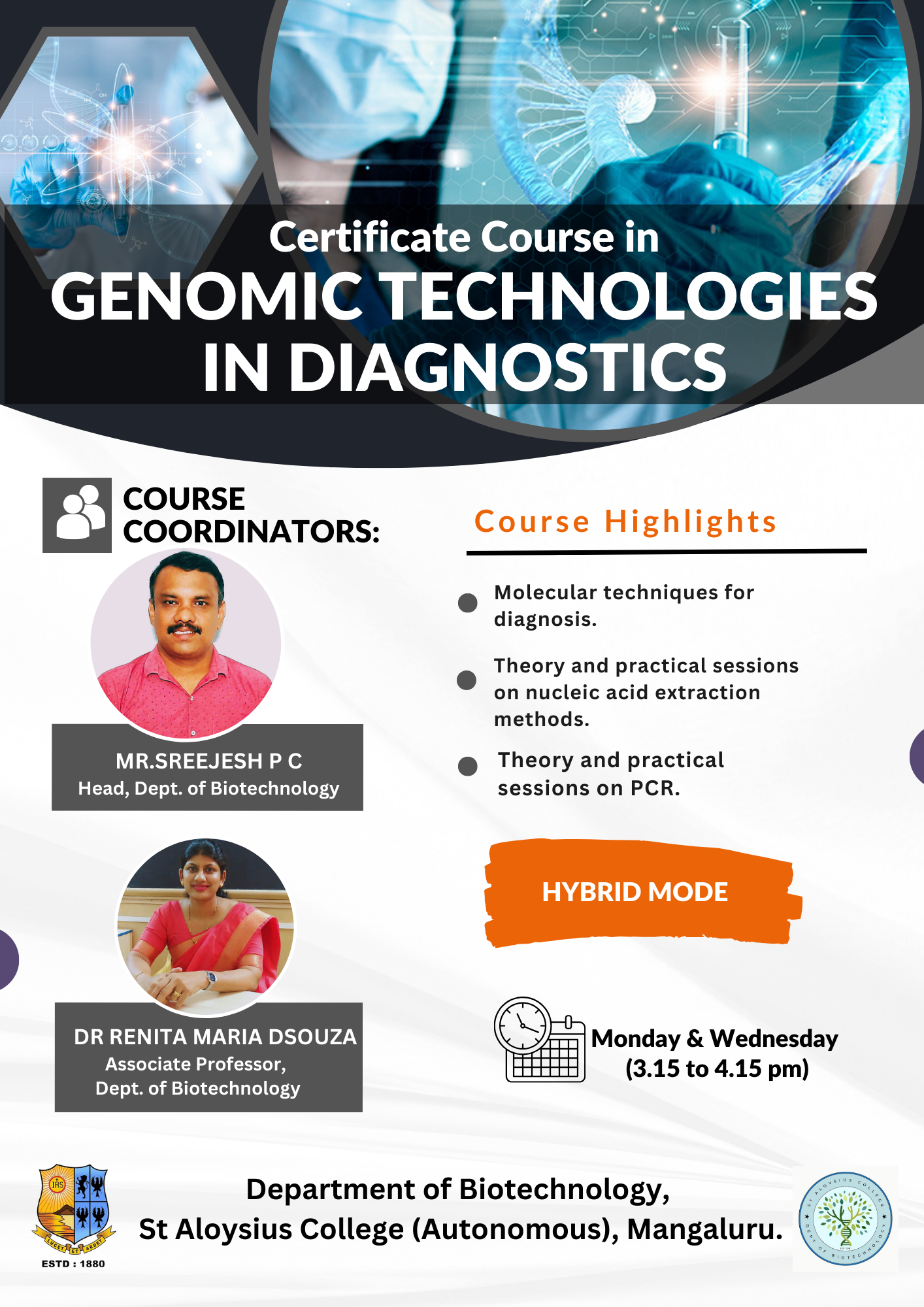Genomic Technologies in Diagnostics

About Course
Course Outcome:
Upon completion of the course, the participants should be able to:
- CO1: Acquire a comprehensive understanding of diverse molecular techniques utilized in the field of genomic diagnostics, including their principles, applications, and limitations.
- CO2: Develop proficiency in executing key molecular methods, encompassing the extraction, quantification, and quality analysis of nucleic acids, as well as the polymerase chain reaction (PCR), within the context of molecular diagnostics.Module I: Molecular Techniques for Diagnosis. (15 Hours)Analysis of gene expression: Southern blot, Northern blot and western blot. In situ hybridization: FISH & GISH. DNA microarray. DNA sequencing- Sanger’s, Next Generation Sequencing. DNA fingerprinting and its applications in forensics.Module II: Theory and practical sessions on Molecular techniques: (15 Hours)Basic introduction to molecular diagnosis, Molecular techniques: Nucleic acid extraction methods, Nucleic acid quantification and purity check. Agarose gel electrophoresis. PCR: Principle, procedure, and applications. Types of PCR: Multiplex, nested PCR, RT-PCR. MODE OF EVALUATION:
FORMATIVE ASSESSMENT FOR THEORY (20 Marks)
SUMMATIVE ASSESSMENT FOR THEORY (30 Marks)
Components: Marks Components: Marks Assignment 10 End exam
30
MCQ/Quiz 5 Class Participation 5 Test – 02 & Assignment – 02 (Each Module)
Course Content
Introduction to molecular diagnosis
-
Molecular Diagnostics
00:00 -
Molecular Diagnostics : Nucleic Acid Extraction & Quantitation
00:00 -
Methods in molecular diagnosis: PCR
00:00 -
Methods in molecular diagnosis 02
00:00 -
Main types of molecular tests
00:00 -
Genomic Methods for Molecular Diagnosis
-
Continuous assessment-1
-
Assignment 2: Exploring the Role of PCR in the Early Detection and Management of Infectious Diseases
-
Continuous assessment 2
-
Continuous assessment 3
-
Assignments 3 : topic Next-Generation Sequencing in the Diagnosis of Rare Genetic Disorders
-
Final Exam
Student Ratings & Reviews

No Review Yet
